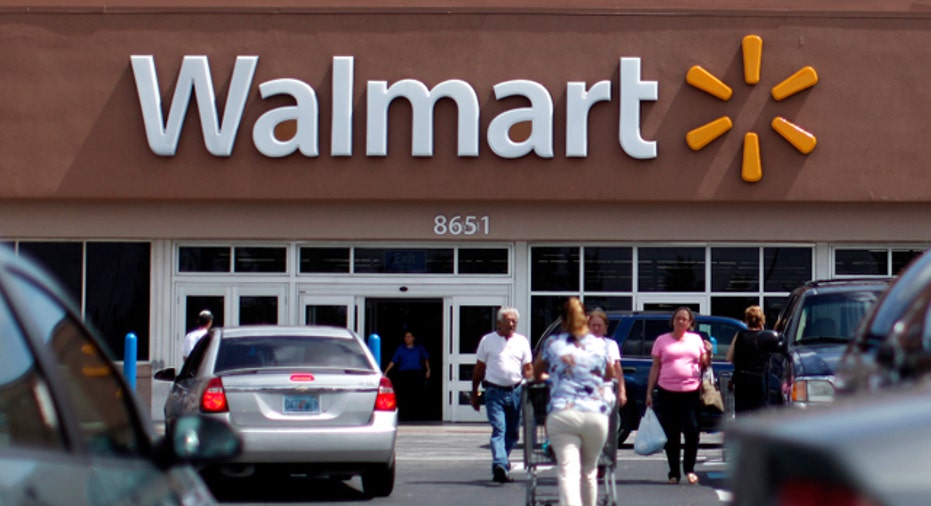Mayor to Walmart: Pay for Your Own Security

This story has been updated with additional information:
Violent incidents at a local Walmart (NYSE:WMT) in Beech Grove, Indiana have the town’s mayor declaring the store a public nuisance. With more than three police visits a day, the mayor argues Walmart is sapping tight resources for a little town of 14,000 that sits southeast from Indianapolis.
But can the mayor blame the store for locals’ dreadful behavior? Is this move a revenue raiser for the town, since the police can slap the local store with $2,500 tickets max?
Or is there another storyline here, that Walmart, with nearly a half a trillion dollars in annual revenue, $482 billion, isn’t doing enough to provide security at its local stores, as customers get assaulted, shoppers brawl, and even killings occur?
The Beech Grove mayor’s move comes as big cities like San Francisco, New York, Boston, and Washington, DC fight Walmart’s continued expansion. The Beech Grove Walmart was the scene of a major brawl between two women in the shampoo aisle that went viral on YouTube.
The Beech Grove Walmart story raises the controversy over what are called “tax increment financing districts.” In these districts carved out to cover the area in which a local Walmart store sits, the store does not have to pay property taxes for about 25 years, in exchange for the economic stimulus a Walmart would bring. Instead, local residents, including mom and pop stores, are left to pick up the slack in property taxes, which pays for things like police, firemen, and garbage pickup. The stores do pay other taxes to the states in which they reside, as well as federal taxes.
Walmart tells FOX Business in an emailed statement: “We certainly don’t want people in our stores for the wrong reasons any more than other businesses do and we have safety and security measures in place to handle accordingly.”
The statement adds: “Walmart has worked closely with local law enforcement officials and directly responded to their requests by both hiring an off-duty police officer to be in the store and implementing a program designed to reduce store calls for police assistance.”
But Dennis Buckley, the mayor of Beech Grove, tells FOX Business: “Walmart is draining our resources, it’s bleeding us. They only pay property taxes into the local taxing district, not back to us in the town. So Walmart is using our cops we pay for, for their security. Walmart has just one off-duty cop in the store, but he’s not there 24/7, he often leaves at noon. They also use our fire department services, too.”
The mayor adds: “We’ve been talking to Walmart for some time now about this problem of lack of security at its store. It’s difficult for us, we only have four to six cops on duty at any given time, but sometimes they all have to go deal with Walmart, putting our residents at risk. It’s frustrating.”
He continued: “Local people here, the vast majority, support Walmart, but they’re concerned about it. I don’t think Walmart does a good enough job of controlling who comes in their store and what they do when they come in their store. They [Walmart] need to send a message they’re not going to put up with this.”
Mayor Buckley says: “The people who are creating these problems are not our residents. They come in from outside the town. It’s a shame, Walmart could really be a good asset. Who knows, an incident is probably going on right now at the Walmart there. It’s got to stop.”
One thing mayor Buckley says Walmart could do is, it “could make the customers it suspects of bad behavior subject to search. They should do what Home Depot and Lowe’s does, and that is check their customers’ bags and check receipts when they’re leaving. They [the Walmart store says] used to do that, but they don’t now.”
After the publication of our story, Walmart provided the following comments:
The Walmart in Beech Grove pays a significant amount of property taxes every year, which, in fact, represent some of the highest rates in the state, significantly exceeding the state’s cap of 3% on the assessed value of commercial property. This store opened in 2005 and a local ordinance included it in part of a tax increment financing (TIF) district in 2007. Inclusion in a TIF district did not relieve Walmart of its significant property tax payments.
The creation of TIF districts in Beech Grove is a decision made by the Beach Grove Redevelopment Commission (BGRC) to foster economic development. Taxpaying businesses, including Walmart, do not have the discretion to determine the use of their property tax payments, important choices that are made by city officials. Upon Walmart’s original inclusion in the TIF district, the BGRC classified the store as “incremental growth of the redeveloped area” so that the City could receive the proceeds from these developments and then use them to invest in nearby economic development projects such as road improvements. Walmart has continued to pay its fair share of property taxes in each year since.



















